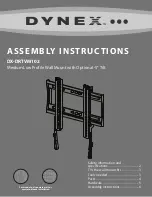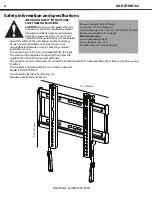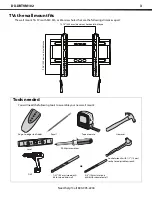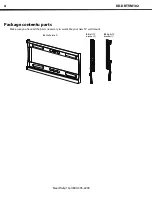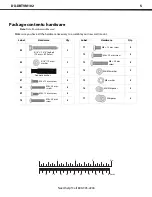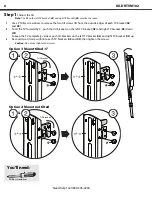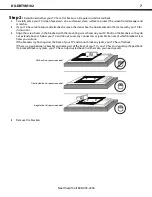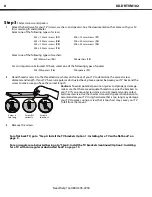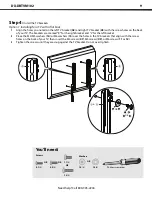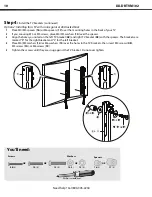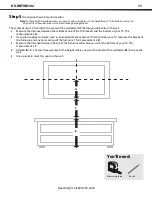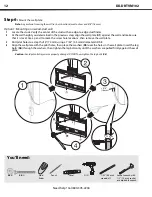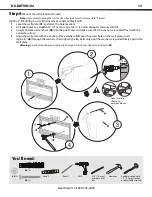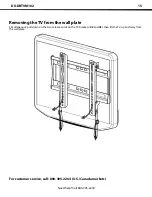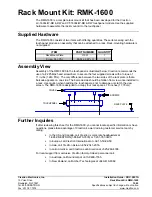
7
DX-DRTVM102
Need help? Call 800-305-2204
Step 2:
Determine whether your TV has a flat back or an irregular or obstructed back
1
Carefully place your TV screen face-down on a cushioned, clean surface to protect the screen from damages and
scratches.
2
If your TV has a table-top stand attached, remove the stand. See the documentation that came with your TV for
instructions.
3
Align the screw holes in the brackets with the mounting screw holes on your TV. Position the brackets so they do
not extend above or below your TV and do not cover any connectors or jacks. Make note of which bracket screw
holes you will use.
If the brackets lay flush against the back of your TV and do not block any jacks, your TV has a flat back.
If there is a gap between a bracket and some part of the back of your TV, your TV has an irregularly-shaped back.
If a bracket blocks any jacks, your TV has an obstructed back. In either case, you need spacers.
4
Remove the brackets.
Flat back (no spacers needed)
Obstructed back (spacers needed)
Irregular back (spacers needed)

